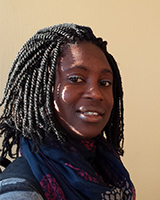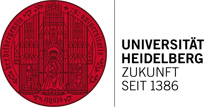“I was attracted by the highly international environment at the university”

Dr. Theresa Manful Gwira, Lecturer for molecular and cellular Biology at University of Ghana in Legon/Ghana
MsC and PhD at Center for Molecular Biology of Heidelberg University (ZMBH) from 2005 to 2011
When, how long and in what position did you stay at Heidelberg University?
I was in Heidelberg from October 2005 to December 2011. I did first my MSc in Molecular and Cellular Biology from 2005 to 2007 and then my PhD in Biology 2007 to 2011.
Why did you decide in favour of the Ruperto Carola?
I was first and foremost attracted by the highly international environment at the university and the fact that the university has a fantastic research oriented way of teaching and also the opportunity to study a Master of Science program taught in English.
How did your career continue after your time in Heidelberg?
I was offered a faculty position at University of Ghana right after my PhD. I am currently a lecturer and a principal investigator at the Department of Biochemistry, Cell and Molecular Biology, University of Ghana where I teach students courses in Biochemistry, Cell and Molecular Biology including topics in advances in infectious diseases research. My lab works on characterizing lifetime trypanosome infections in cattle in Ghana and drug resistance in cattle to the commonly used drugs for the treatment of Animal African Trypanosomiasis.
What have you learned in Heidelberg? What experiences have been particularly valuable?
In terms of education I gained a lot of knowledge in Molecular and Cell Biology and I obtained invaluable training and experience in infectious disease research, specifically the use of modern technologies to study the parasite that causes African trypanosomiasis. I found myself in a very friendly research laboratory with an excellent research supervisor. Apart from the German PhD students, I had the opportunity to work with other PhD students from other parts of the world e.g. Argentina, Columbia, Peru, China, India, Uganda, Kenya, France and Portugal. I am happy to say that I am still in contact with some of them and we still continue to share research ideas.
What did you like best about being in Heidelberg? What suggestions would you have for improvements?
The opportunity to interact with many research groups that were interested in various research topics which helped me to broaden my knowledge outside the trypanosomes field.
What is your view of the German scientific system in comparison to that of your home country or to that of other countries where you may have conducted research?
The German system is highly organized and most importantly combined teaching with current research which helps students to be abreast with the most current information in their research area.
In your opinion, what is the importance of international exchanges for researchers?
International exchange is very important for sharing ideas and for facilitating collaborations.

